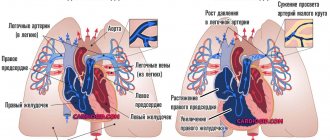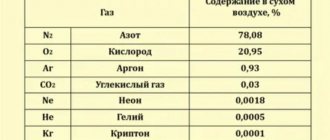Follicle-stimulating hormone, designated by the English term FSH, is a gonadotropin consisting of more than two hundred amino acids. This hormone is secreted by the pituitary gland. In a woman’s body, the secretion of hormones depends on age and the phase of the menstrual cycle, so FSH norms vary.
In the female body, follicle-stimulating hormone is responsible, among other things, for stimulating the synthesis of estrogen and the production of progesterone. It is also a factor responsible for egg production and follicle maturation.
FSH: what is it for women
In women, this hormone regulates the development and maturation of follicles in the ovaries. Within normal limits, FSH is elevated before ovulation. It is its high level that leads to its onset - the release of the egg from the follicle.
If FSH production is disrupted and its level deviates from the norm, this can lead to infertility and other serious problems.
Therefore, the answer to the question about FSH: “what is it for the body” can be the definition - it is one of the main regulators of the normal function of the female and male reproductive system.
FSH hormone - study in women
The content of the article
For women, tests for follicle-stimulating hormone levels are recommended in several cases. Most often, diagnosis is associated with infertility treatment, since the test helps determine a woman's ovarian reserve.
Other diseases that require FSH testing include:
- pituitary gland abnormalities (both sexes);
- menstrual irregularities;
- hypergonadism.
The test may also be given to children who experience puberty too early or too late, which may be due to problems with certain areas of the brain.
FSH levels are also measured in perimenopausal women. Interestingly, research is still ongoing into the possibility of using follicle-stimulating hormone taken from women during menopause to treat younger women who are struggling with infertility. The administration of the hormone should stimulate ovulation and thus increase the likelihood of fertilization during ovulation.
Testing follicle-stimulating hormone levels can also be useful in diagnosing a number of other women's conditions, including polycystic ovary syndrome.
Polycystic ovary syndrome
How and when to get tested for hormones
“Donating hormones,” more precisely, taking blood for sex hormones and their regulators (FSH, prolactin, LH) requires compliance with simple conditions that will help achieve an accurate result without errors and errors.
So the FSH norm in women is usually determined on days 6-7 of the menstrual cycle. To prevent the FSH test result from being lowered or falsely elevated, you should:
• Three days before taking hormonal tests, avoid intense sports activities and training;
• You should not smoke 1 hour before donating blood;
• 10-15 minutes before taking blood, you should rest and calm down, then the result will be without errors.
If these simple conditions are not followed, the result may be that the FSH level is increased or decreased. Moreover, both low FSH and a high level of this indicator in such conditions may turn out to be erroneous.
The FSH norm in women and men in the blood is determined in the morning and on an empty stomach (from approximately 8 to 11 o’clock).
Since FSH can be decreased or increased due to its pulsed entry into the bloodstream, it is recommended to take 3 blood samples at once, each with an interval of 30 minutes or more.
The role of FSH in the male body
Follitropin is responsible for a number of important functions:
- it activates the development of seminiferous tubules and promotes normal functioning of the testes;
- has a beneficial effect on sperm maturation;
- promotes the proper functioning of testicular tissue;
- participates in the process of testosterone release (secretion).
Men are prescribed an examination to determine the concentration of follicle-stimulating hormone in the blood if the patient has a decrease in libido, a chronic inflammatory process of the reproductive organs, as well as decreased activity of the gonads.
Tests for follicle-stimulating hormone: normal
Normally, FSH is highest in men in the summer.
Another important indicator is how the LH and FSH norms correlate in women. So, before the start of the first menstruation, the LH/FSH norm is 1. A year after the onset of menstruation, the LH/FSH norm is 1-1.5. Two years after the start of menstruation and until menopause, LH/FSH in women is 1.5-2. If LH or FSH is increased or decreased, this ratio changes markedly.
The FSH norm in women during the reproductive period averages 0.57 - 8.77 mU/ml.
In girls under 14 years of age, the norm can range from 0.19 to 7.9 mIU/ml.
The FSH norm in women varies during different periods from the beginning of the first menstruation, depending on the phase of the cycle. FSH is lowered more in the luteal phase of the cycle and is in the range of 1.09 – 9.2 mU/ml. FSH is increased more in the ovulatory phase and amounts to 6.17 -17.2. Compared to these figures, in the follicular phase FSH is reduced to 1.37-9.9 mU/ml.
The level of this hormone in postmenopausal women is 19.3 - 100.6 mU/ml, that is, during this period this indicator is significantly increased.
Compared to the indicators in women, in men over 21 years of age FSH is 0.95 – 11.95. In other age periods in men, FSH is reduced and can be less than 9.9 mIU/ml.
When is low FSH level detected?
Low FSH may occur in the case of:
- hyperprolactinemia;
- polycystic ovaries;
- obesity;
- pathologies of the pituitary-hypothalamic system;
- amenorrhea.
Do not forget that low FSH levels are determined throughout pregnancy, when taking anabolic steroids and fasting. In men, with a reduced concentration of follicle-stimulating hormone, the testicles atrophy, erectile dysfunction occurs, the quantity and quality of sperm in the ejaculate decreases, up to azoospermia. In representatives of both sexes, with low FSH levels, libido decreases, less body hair grows, and wrinkles appear early.
Restoring hormonal balance
If the balance of hormones is disturbed, treatment should be completed immediately. An imbalance in the level of one hormone will entail an imbalance in the hormonal system responsible for the health of the reproductive function, for the health of the sexual sphere of men and women. If there is a malfunction in the functioning of the endocrine system, the functioning of the hypothalamus and pituitary gland, tests show a pathological change in the level of LH, follitropin - treatment will be prescribed by an endocrinologist, gynecologist-endocrinologist or andrologist-endocrinologist.
The IVF Center clinic in Arkhangelsk offers the help of specialists - an endocrinologist, an andrologist, for examination of hormone levels and treatment of endocrine infertility in men and women.
Hormones: what are they?
Hormones are produced by the endocrine glands, travel with the blood throughout the body and stimulate cells.
Their main task is to maintain the body’s performance in a stable state, protect against external and internal stimuli, and control cell development. In the female body, hormones are directly involved in conception. With their help, eggs are produced, the endometrium changes in structure and milk is produced. With hormonal imbalances in the body, pathological changes in a woman’s body are possible.
The FSH hormone in women has a catalytic function. It belongs to a number of gonadotropic hormones and activates the conversion of testosterone into estrogens, their synthesis, accelerates the growth and development of follicles in the ovaries. The hormones FSH and LH play a critical role during the normal menstrual cycle. So, if the FSH hormone is elevated, the follicle will not be able to develop, as a result of which the “meeting” of the egg and sperm will not occur.
Menstrual cycle and its phases
The preparation of the female body for pregnancy is called the menstrual cycle. It is divided into several phases. The first phase is follicular. It is characterized by the production of follicle-stimulating hormone in the female body, which, in turn, promotes the development of the follicle in the ovary, necessary for the maturation of the egg. If the FSH hormone is increased or decreased, follicle production does not occur. Thus, the egg will not be able to mature, and ovulation will be impossible.
Moreover, follicle cells secrete estrogens, which affect the chemical and physiological processes in the body. This affects tissue growth and sexual function. The amount of estrogen increases in the middle of the menstrual cycle. The pituitary gland begins to secrete luteinizing hormone in larger quantities, reducing the production of follicle-stimulating hormone.
When a certain level of LH concentration is reached, the second phase begins - ovulation. It is characterized by the destruction of a mature follicle, and the further release of an egg from the ovary, which is ready for fertilization.
After ovulation, the third phase begins - the luteal phase. During this phase, the ruptured follicle transforms into the corpus luteum, which produces progesterone (a steroid hormone). If the egg is not fertilized by a sperm during ovulation, the corpus luteum is destroyed. Progesterone levels decrease, and the pituitary gland will again begin to secrete the hormone FGS. If it is normal, then the menstrual cycle will repeat without pathologies. If fertilization of the egg has occurred, then after a certain time after ovulation the pituitary gland will begin to secrete hCG, which promotes the development of the corpus luteum, preparing the uterus for pregnancy.
How to prepare for a blood test for FSH
To carry it out, blood is taken from a vein in the morning on an empty stomach. Since the FSH level increases in pulse mode, it is advisable to take blood samples at least 3 times every 30 minutes to obtain objective data.
Before donating blood, you need to prepare to eliminate the influence of external and internal factors on the results. Firstly, the last meal should be no later than 22-00; you can drink water in the morning, although many experts do not recommend this. Secondly, 3 days before the FSH analysis, you should exclude alcohol, physical activity, and fatty foods. Thirdly, blood is donated for FSH a week after stopping any drug treatment; if it is impossible to interrupt the course of therapy, then this point is discussed with the doctor. Also, many experts do not recommend performing FSH analysis after an X-ray or ultrasound examination.
You can get tested for FSH and other hormones at the IVF Center in Kaliningrad. Experienced specialists of the center will conduct all the necessary studies to identify pathology, answer your questions, and also draw up an adequate course of therapy.
Analysis transcript
The results of the FSH analysis can refute or confirm fears; they can be within the normal range, increased or decreased. An increase in hormone concentration is observed in the following situations:
- Menopause period (normal variant)
- Primary ovarian dysfunction (premature ovarian failure, ovarian cyst, neoplasm, hereditary disorders, etc.)
- Primary testicular failure (testicular underdevelopment, neoplasms, genetic disorders, etc.)
- Hyperfunction or tumors of the pituitary gland
- Endometriosis
- Feminization
- Formation of a hormone-producing tumor
- Early puberty
- Alcoholism
Most of these causes cause reproductive disorders, in particular infertility.
A decrease in FSH concentration is detected when:
- GnRH deficiency
- anovulatory menstrual cycle
- obesity
- pituitary insufficiency
- dwarfism
- excess prolactin production
- neoplasms of the ovaries and testicles with increased secretion of estrogen or testosterone
- polycystic ovary syndrome
- hemochromatosis
- fasting
- anorexia
- Sheehan's syndrome
A reduced concentration of this hormone leads to hypogonadism and a gradual shutdown of the functional activity of the gonads.
Prolactin and FSH
These are hormones that are interconnected. When prolactin levels increase, follitropin, LH, and estradiol fall. This condition is considered normal during pregnancy - prolactin rises, and FSH, LH, estradiol fall. Prolactin prevents the development of follicles and the onset of ovulation, thus helping to maintain pregnancy. Increased prolactin, and decreased others, is observed during breastfeeding. Prolactin is responsible for lactation, milk production and filling of the mammary glands.








